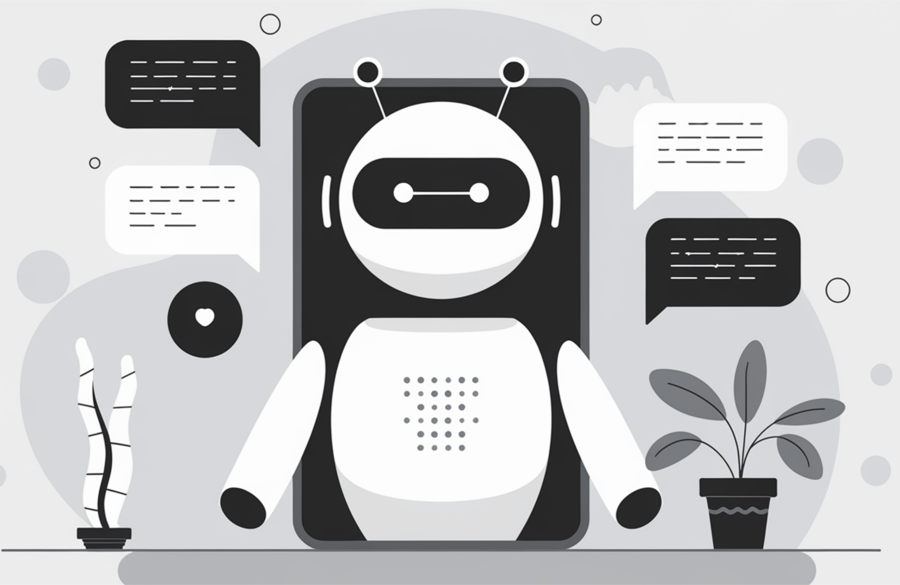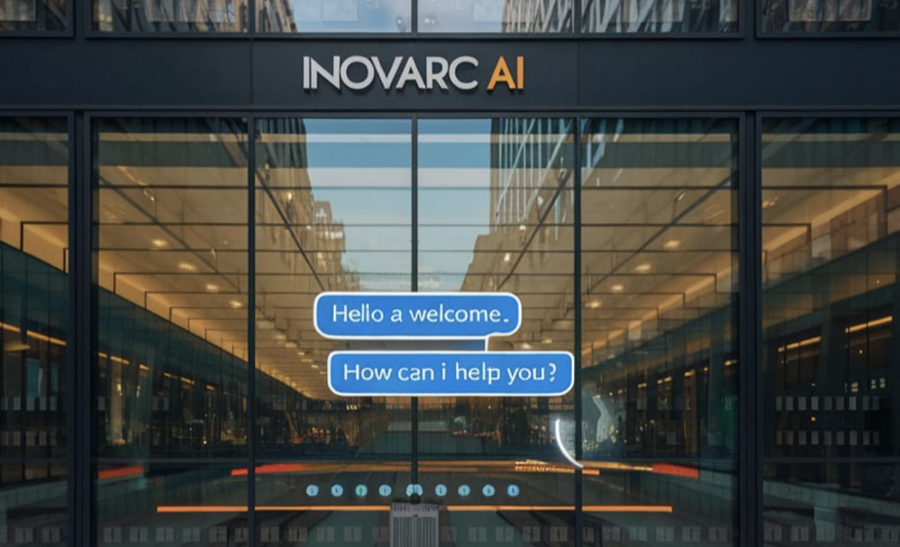Think Before You Chat: How Your Messages To Chatbots Could Train AI

Chatbots are everywhere these days. You might chat with them on websites, apps, or even your smart home devices. But have you ever thought about what happens to those chats? Your casual conversations with chatbots could be used to train AI systems.
Here’s a fact: many popular chatbots, like OpenAI’s ChatGPT and Google’s Gemini, use huge sets of data from the internet to learn. This includes chats with users like you. In this article, we’ll explore the risks of chatbots using your conversations for AI training.
We’ll also look at ways to protect your data. Ready to learn more about staying safe while chatting with AI?
Potential Risks of Chatbot Interactions for AI Training

Chatbot talks can pose risks for AI training. Your chats might teach AI things you didn’t mean to share.
Disclosure of Sensitive Information
Chatting with AI bots can be risky. You might share personal info without thinking. Google warns users not to tell Gemini confidential details. This includes medical conditions, financial data, or private matters.
AI companies could use this info to train their systems, which you may not want.
Your chats with AI don’t stay private forever. For users 18 and older, conversations are kept for 18 months by default. All chats are stored for 72 hours for service needs and feedback.
This means your words could be used long after you’ve forgotten about them. Be careful what you say to AI – it might come back to shape future tech.
Think before you type. Your chat today could be tomorrow’s AI training data.
Lack of Consent in Data Usage
You might not know that your chats with AI bots could be used without your say-so. Many companies don’t ask if they can use your words to make their AI smarter. This lack of consent is a big worry for privacy fans.
It means your private chats might end up in huge data sets used to train AI systems.
In some places, you have more rights over your data. If you live in the EU or UK, you can tell companies not to use your info. A person in the UK even got their way by sending an email.
But if you’re in the US or other countries without strong data laws, you’re out of luck. You can’t stop your chats from being used to teach AI. This gap in rights shows how tricky it is to protect your online privacy in different parts of the world.
Concerns About AI Training Data
AI training data raises red flags. Large datasets from the internet pose risks to privacy and copyright.
Use of Large Datasets from the Internet
Chatbots rely on massive datasets from the web to learn and grow. These datasets include blog posts, news articles, and social media comments. AI companies use this info to train their systems, helping them understand human language and respond more naturally.
But this raises questions about privacy and consent.
Data is the fuel that powers AI, but we must ensure it’s ethically sourced and used.
You might wonder if your chats with AI are being used for training. Some companies, like Anthropic, don’t use personal data by default. They ask for your okay before using any of your responses to improve their AI.
It’s crucial to know how different chatbots handle your data before you start typing away.
Copyright Issues
Copyright issues loom large in AI training data. Companies often use vast datasets from the internet to teach their AI models. This practice raises concerns about the use of copyrighted material without permission.
Artists, writers, and other creators worry that their work is being used to train AI without their consent or compensation.
Legal challenges have emerged as a result of these practices. Some creators have filed lawsuits against AI companies, claiming copyright infringement. The outcome of these cases could shape the future of AI development and training.
It’s crucial for AI enthusiasts to stay informed about these legal battles and their potential impact on the field.
Difficulty in Removing Previously Used Data
AI systems gobble up vast amounts of data to learn and improve. Once they’ve used this info, it’s hard to take it back. Think of it like trying to remove a drop of ink from a glass of water – nearly impossible.
This creates a big problem for people who want to keep their data private or change their minds about sharing.
You might wonder if you can delete your old chats with AI. Sadly, it’s not that simple. Even if you erase your end of the conversation, traces of it may still exist in the AI’s memory.
Companies often keep data for a month to check for misuse. You can stop future chats from being recorded, but what’s already been used is tough to fully remove. It’s crucial to think before you type when talking to AI chatbots.
Measures to Prevent Chatbot Conversations from Being Used in AI Training
You can take steps to protect your chatbot chats from AI training. Some companies offer ways to opt out, while others let you control data retention and access.
Opt-out Options by Companies
Companies offer ways to protect your data from AI training. Here are some opt-out options you can use:
- Google Gemini: Visit the Gemini website and click “Turn Off” to stop your data being used.
- Meta: Fill out a form to ask that third parties don’t use your scraped data.
- OpenAI ChatGPT: Go to your account settings and switch off data usage for AI training.
- Grok: Untick the box under “Privacy and safety” to opt out of data usage.
- Microsoft: Check your privacy settings in Microsoft products to control data sharing.
- Amazon Alexa: Manage voice recordings and other data in your Alexa privacy settings.
- Apple Siri: Adjust Siri settings on your iPhone or iPad to limit data collection.
- IBM Watson: Review IBM’s data privacy policies and contact them for opt-out options.
- Slack: Check Slack’s privacy settings to control how your data is used.
- HubSpot: Look into HubSpot’s data management tools to protect your info.
Retention Settings and Human Review Access
Chatbot companies often store your conversations for AI training. You should know how long they keep your chats and who can see them.
- Gemini holds chats for 18 months by default for adult users
- All chats stay for 72 hours to provide service and process feedback
- Human reviewers can access chats to improve AI models
- Some firms offer opt-out choices for AI training use
- ChatGPT keeps opted-out chats in history but doesn’t use them for training
- Data laws may affect how long firms can keep your chats
- Check privacy settings to control chat retention length
- Ask about human review policies before sharing sensitive info
- Look for ways to delete your chat history if needed
Data management varies across countries due to different privacy laws. Let’s explore how firms handle user data in various regions.

Data Management for Users in Different Countries
Moving from retention settings, we now explore how data management varies across countries. Different nations have unique laws and regulations about AI data use.
- EU and UK citizens have more control over their data. They can ask companies not to use their chats for AI training.
- Users in the US and other places without strong privacy laws have fewer options. They often can’t stop their data from being used to train AI.
- Meta, which owns Facebook and WhatsApp, has strict rules. It doesn’t use private messages from these apps to train its chatbots.
- Some UK users have successfully asked to keep their data out of AI training. They did this by sending an email to the company.
- Companies must follow local laws when handling user data. This can mean different rules for users in different countries.
- Data storage locations can affect how companies manage user info. Some nations require data to be kept within their borders.
- AI firms often use large datasets from the internet to train their models. This can include public posts and comments from social media.
- Copyright issues can arise when using online data for AI training. Some creators argue their work is being used without permission.
- Removing data from AI models after they’ve been trained is hard. This makes it crucial to manage data properly from the start.
Conclusion
Your chats with AI bots can shape future tech. Be smart about what you share. Think twice before typing personal info or sensitive data. You have power over your digital footprint.
Use it wisely to protect yourself and guide AI growth. Stay informed, stay safe, and chat on with care.
FAQs
1. How do chatbots learn from our messages?
Chatbots, like Microsoft Copilot and Meta AI, use machine learning to study our chats. They look at how we talk and what we say. This helps them get better at natural language processing. The more we chat, the smarter they become.
2. Can my private info be used to train AI?
Yes, it can. When you use messaging apps or smart speakers, your words might train AI. But don’t worry – most companies try to keep your data safe. They often remove personal details before using chats for training.
3. What types of AI use our chat data?
Many AI types learn from chats. Large language models, like those used in Google Bard or GitHub Copilot, are big ones. Customer service bots and digital assistants also use this data to improve.
4. How does AI-trained chat help businesses?
AI-trained chat helps loads. It makes customer service faster and better. It can handle lots of people at once. This helps with things like inventory management and employee self-service. It even helps create ad copy and do market research.
5. Are there risks in chatting with AI?
There are some risks. AI might learn biases from chats. It could also pick up wrong info if people aren’t careful. That’s why human checks are important. Companies like IBM and Google work hard to make sure AI learns the right stuff.